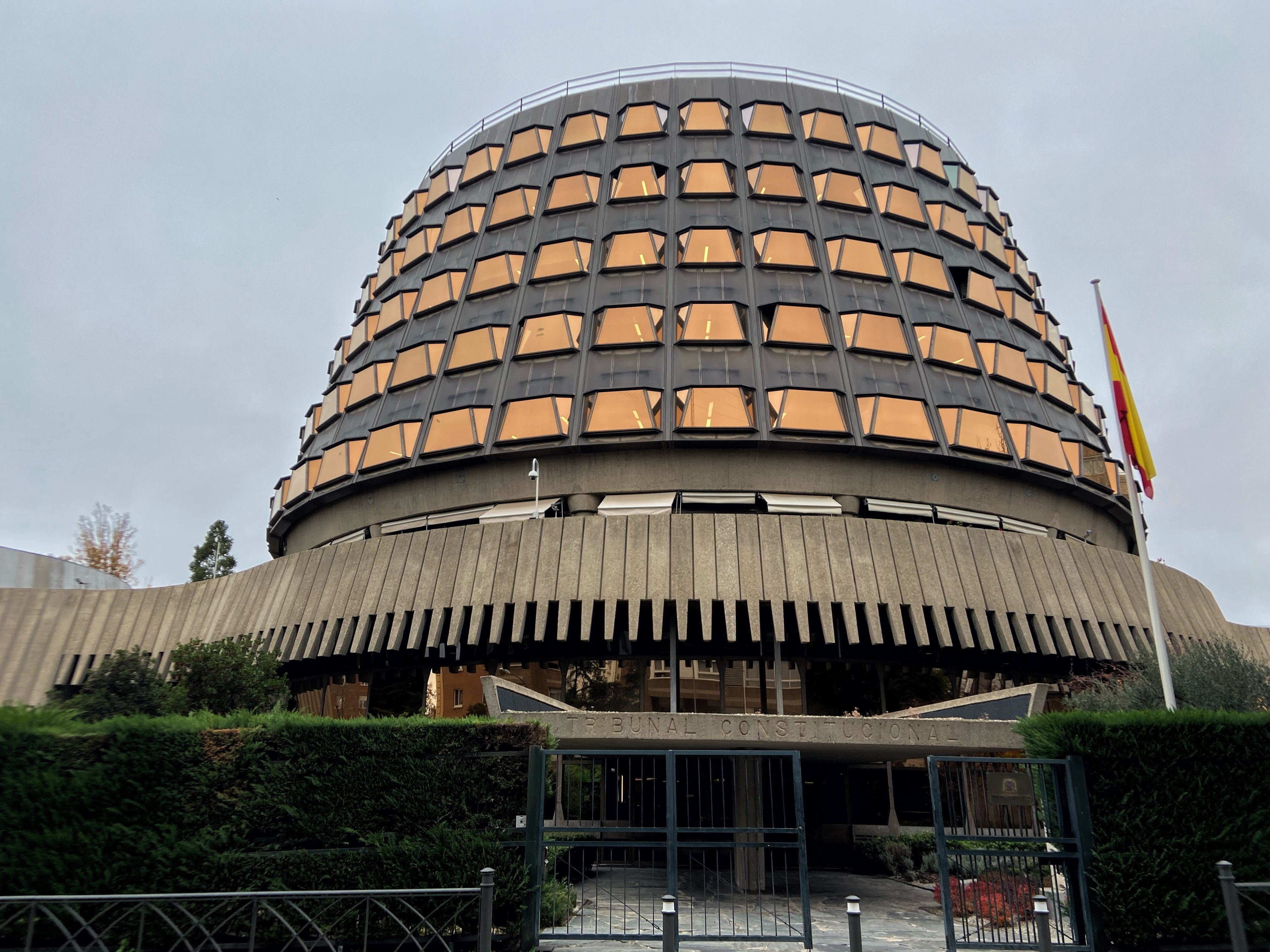Adjourned. The Spanish Constitutional Court has decided this Thursday to adjourn until next Monday the plenary session to decide whether to accept or reject the appeal lodged by the opposition People's Party (PP) that requests a halt in the reform of the judiciary. The five progressive judges on the court requested that the crucial meeting be held another day in order for "the matter to be studied completely, in view of the volume of documentation provided, the complexity of the issue and the importance of the decision". These five judges consider that all these issues, in addition to the documents presented this Thursday morning by the Socialists (PSOE) and the alternative left Unidas Podemos, "make it impossible to participate in the deliberation and voting".
With the planned meeting having been called urgently so that a decision could be made before the Spanish Congress started considering the judicial reform in the house this Thursday, contradictory reports from lawyers had been tabled for the judges, both in favour and against the call for urgent interim measures presented by the PP. It should be borne in mind that each of the eleven judges - six conservatives and five progressives - who are currently part of the Constitutional Court have their own lawyers to assist them. This is why several reports were issued urging diametrically opposed decisions. Judge Enrique Arnaldo, loyal to the hardest right-wing tendency of the PP, was chosen to be the reporting judge on the appeal.
The PP "respects" the decision to postpone the plenary
Meanwhile, PP sources were guarded in their comments about the postponement of the plenary, a decision that is "respected" at party headquarters. However, these same sources admit that they would have liked a "quick response" to their appeal. They say that they "will continue to combat the political action via the judicial route of fighting the legislative excesses" of the Pedro Sánchez government.
The PP's appeal to the Constitutional Court was aimed at stopping two new amendments which were added to the bill repealing the crime of sedition, with the intention of changing the Spanish laws governing the judiciary and the Constitutional Court. The PP considers that the PSOE and Podemos have launched a manoeuvre that is "fraudulent" in its use of parliamentary procedures. The party headed by Alberto Núñez Feijóo argues that there is no relationship between a bill that seeks to repeal a crime such as sedition and the desire to change the law to renew the Constitutional Court.
The spokeswoman for the PP in the Congress of Deputies, Cuca Gamarra, stated that her party presented "the first" of several appeals that it will present before this same court. In her party's view, the Moncloa's "goal" is "to control the Constitutional Court, something they need so that the referendum that has been talked about so much these last few days can be held". The hope of the PP was that the Constitutional Court decides itself before the Plenary this Thursday, when the amendments to the repeal of sedition must be voted on.
What do the PSOE-Unidas Podemos amendments say about the two judicial organs?
The governing PSOE and junior coalition partner Unidas Podemos presented two amendments to reform the judiciary and thus end the deadlock among judges on new appointments to the Constitutional Court. First of all, they intend to reduce the three-fifths majority that the General Council of the Judiciary (CGPJ) must reach in the selection of the two Constitutional judges it has to choose, under a new system in which the two judges who get the most votes will be appointed. Moreover, with the Spanish government also having to choose two new judges for the court, the other amendment seeks to allow either party involved (the government or the CGPJ) to be able to make their own appointments even if the other party does not do so within the set deadlines. They also want to establish a deadline for the election that could make holders face criminal responsibilities in the event that the members fail to meet it. For over four years, the renewal of Spain's judiciary has been
Exceptional situation
This is the first time that the Spanish Constitutional Court has called an extraordinary plenum of this type to decide whether to suspend parliamentary processing of a bill in the Congress of Deputies. Despite the seriousness of the sight of a court invading the legislative powers of a parliament before its debate and approval, the same thing has happened more than once in Catalonia since 2014. The first case was on the occasion of the 2014 unofficial consultation of the Catalan people in their independence.

